It is important to us that the local indigenous families always keep their dignity while receiving aid. Economic developments projects are awesome because we work with families that have been part of the project for a long time- they have invested their time and shown that it means a lot to them to improve their future- and we collaborate with them so they have long-term income. These are big projects that cost up to $3000US so we don’t do them often, and we only do them with families that are working hard to start their business. Sometimes people visit and look at how some of the families here suffer in extreme poverty and want to help them, but usually these are families that we can’t get to participate and are complacent in their situations: they won’t help themselves so we are also unsuccessful in helping them.
2020 Update: we are hoping to do our next economic development project in 2021 with two of our girls on scholarship for business administration. The project will be an organic essential business, with everything grown and produced locally.
PatCure Grooming Studio with Gaby
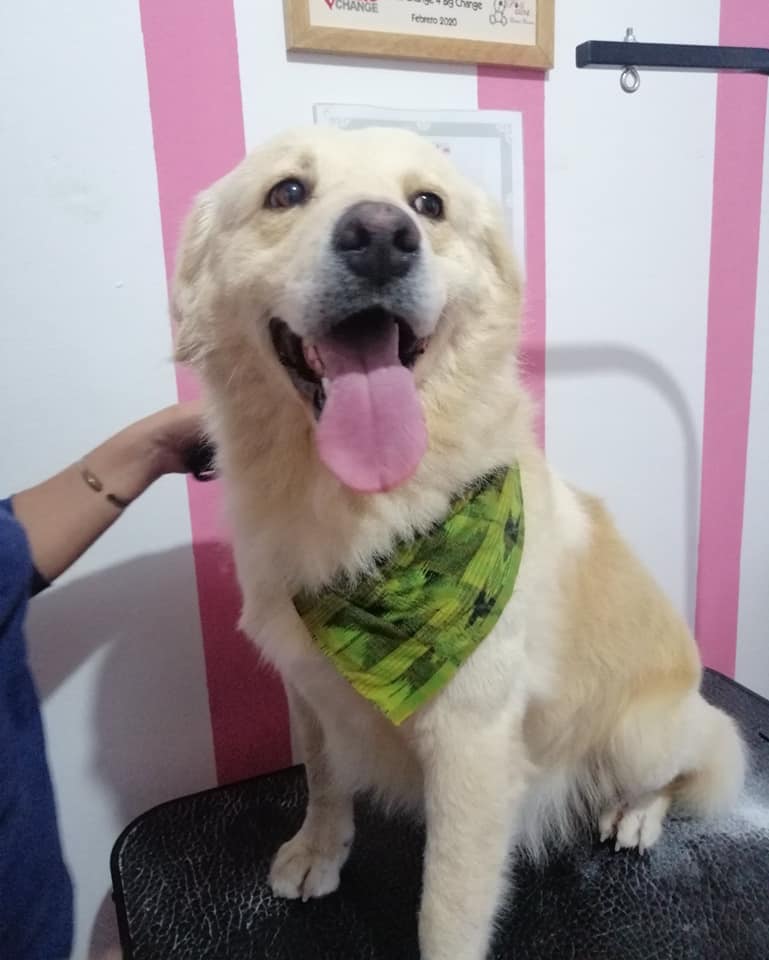
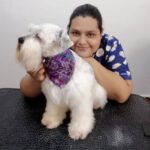
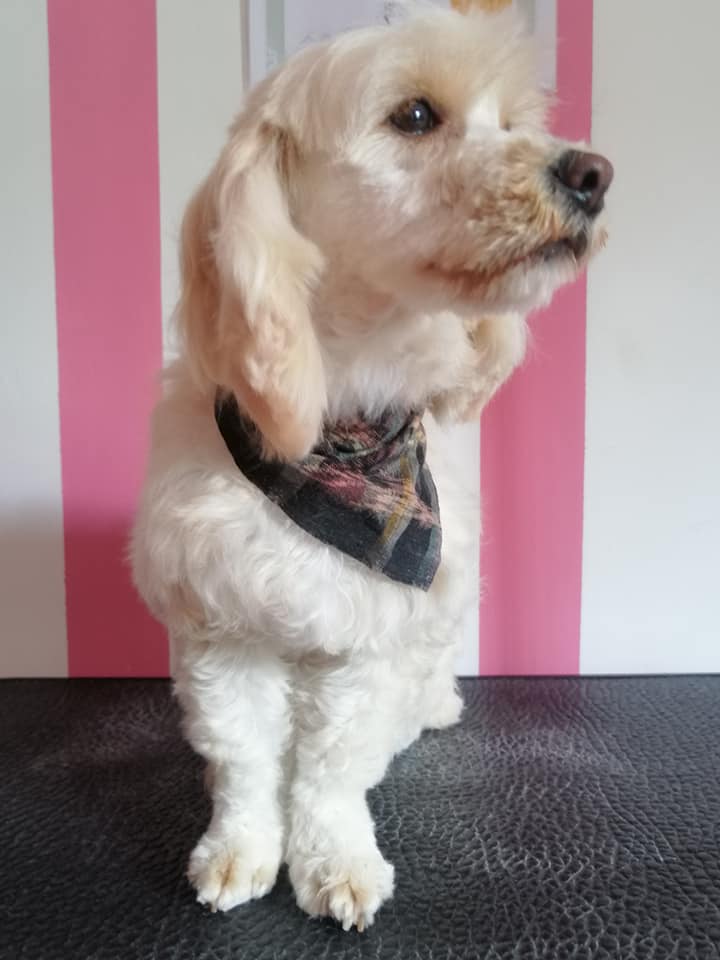
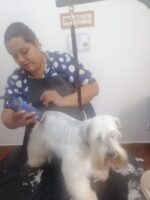
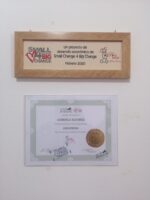
Gaby is one of our girls on scholarship- she is studying to be a veterinary technician in the university, and volunteers in our veterinary clinic Amor Animal. We sent Gaby to a grooming course in Guatemala City, and in February 2020, we partnered with Gaby to open a grooming studio in her home, and it has done really well! Now that we have been working in animal well-being for years in our area, the culture of pets has changed, and Gaby is able to charge $5-7US for bathing and $11-15US for grooming (cutting and styling)!
Monte de Horeb Restaurant with Chepe
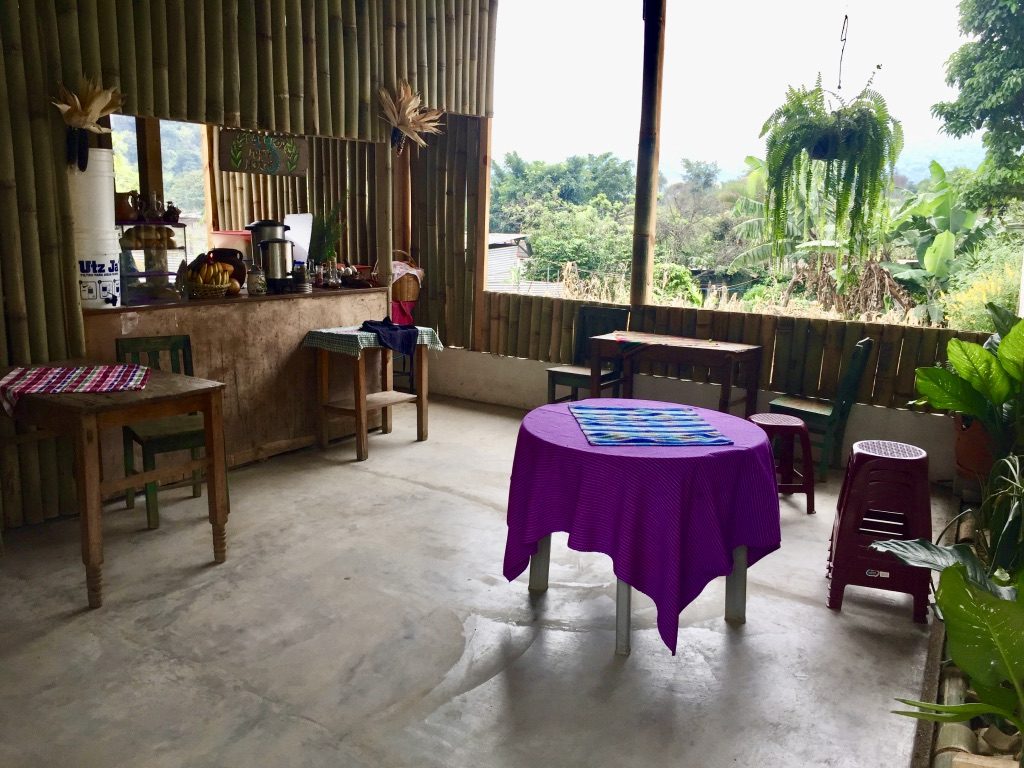
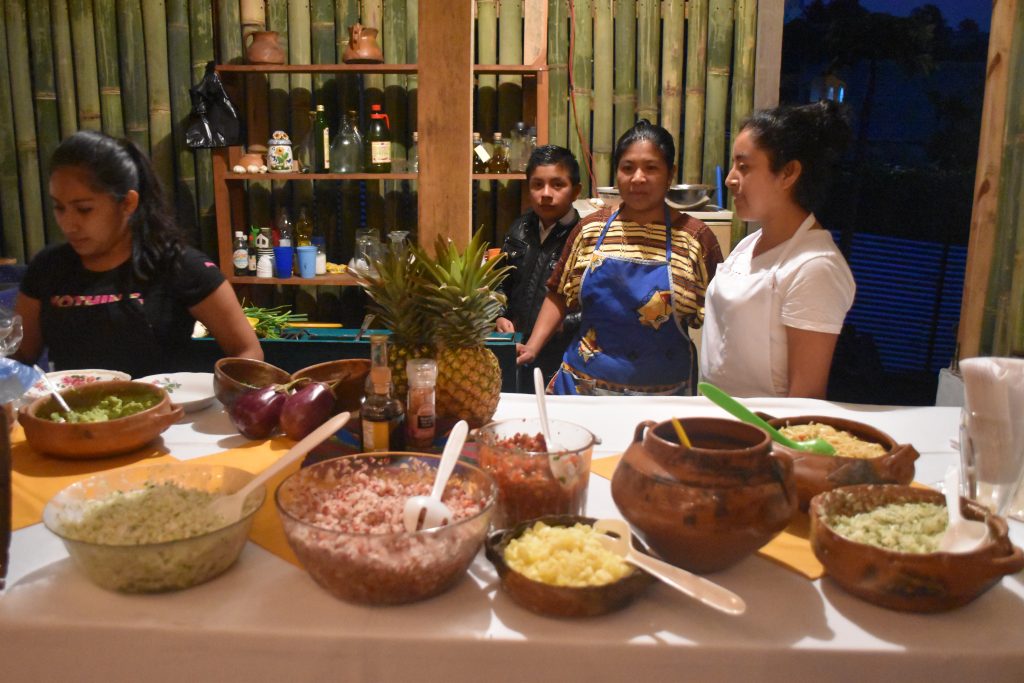
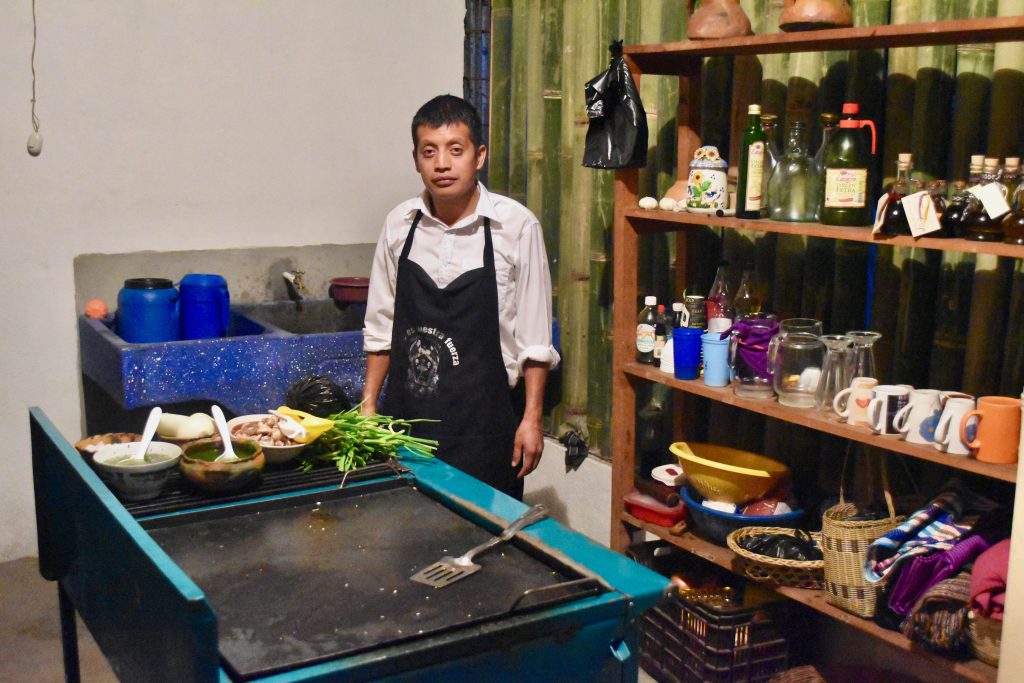
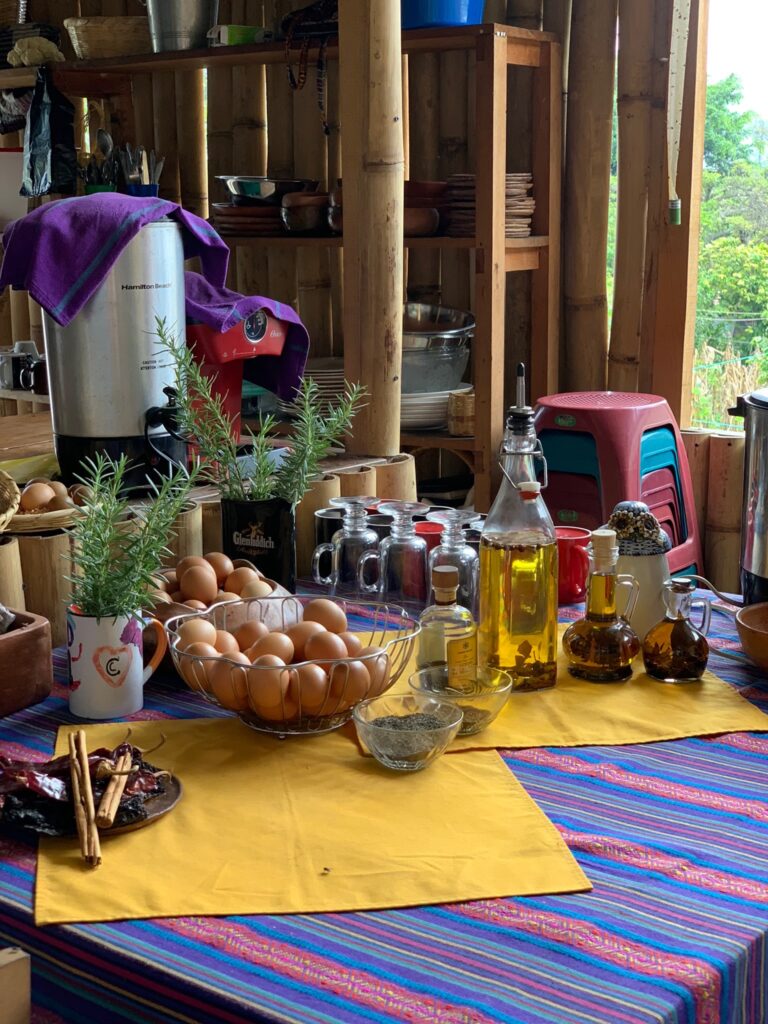
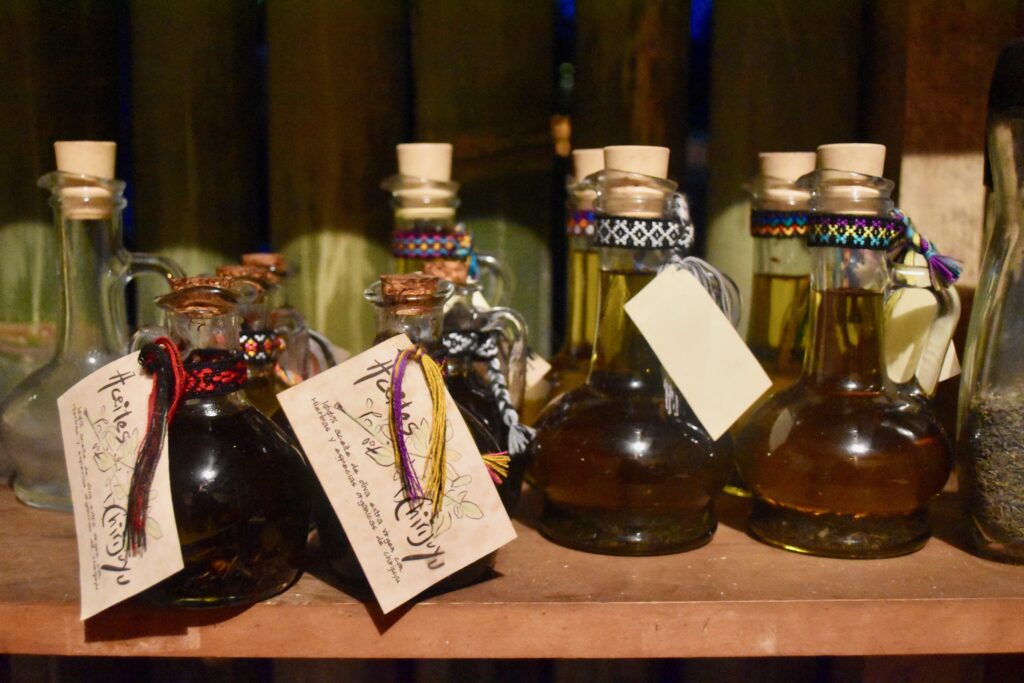
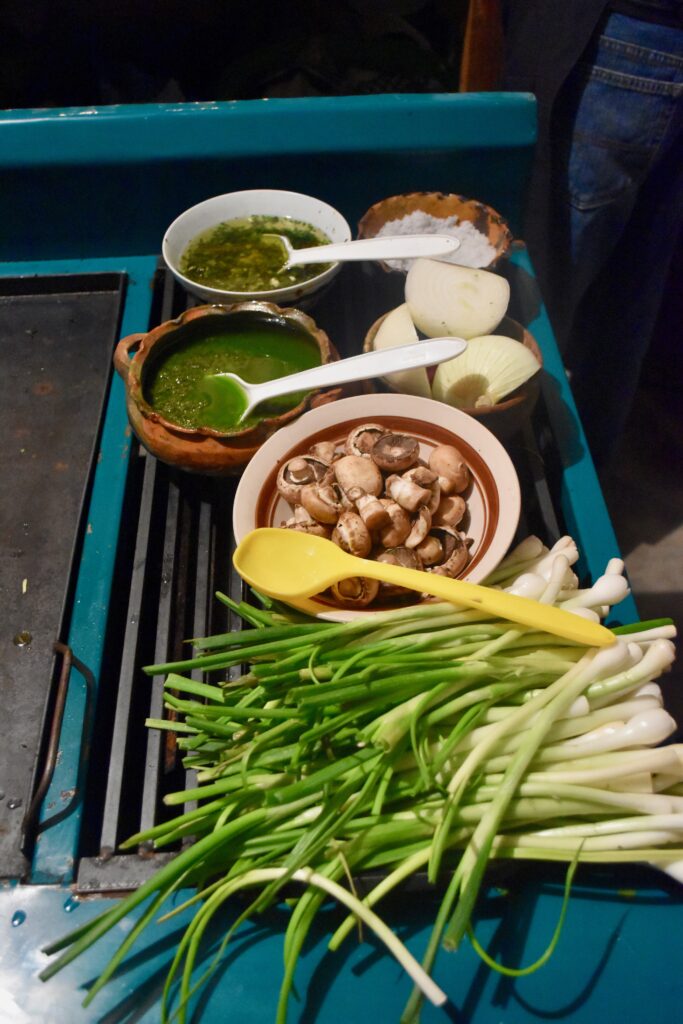
2018 was our biggest economic development project yet- a small restaurant here in our neighborhood. Chepe used to work in nice restaurants and hotels in Guatemala City before he got cancer and lost everything. Four years ago, he started to recover and opened a small metal shack with dirt floor on his parents’ land, and started selling sandwiches. Chepe is an excellent cook but the ambiance wasn’t great, as hard as he tried. In 2018 we had the privilege of investing $3000US in his restaurant- to triple its size, put in a big concrete floor, permanent walls, tin roof and lighting. It is now a beautiful space and stays busy constantly, from 6am when Chepe opens to sell fresh-squeezed orange juice until 10pm at night when he sells sandwiches to guys finishing soccer practice. Chepe’s wife Yoli was able to quit her low-paying nanny job and now sells produce out front of the restaurant. They earn enough to cover all their expenses and support their son Jonathan, and to continue to expand the restaurant.
Luky’s House
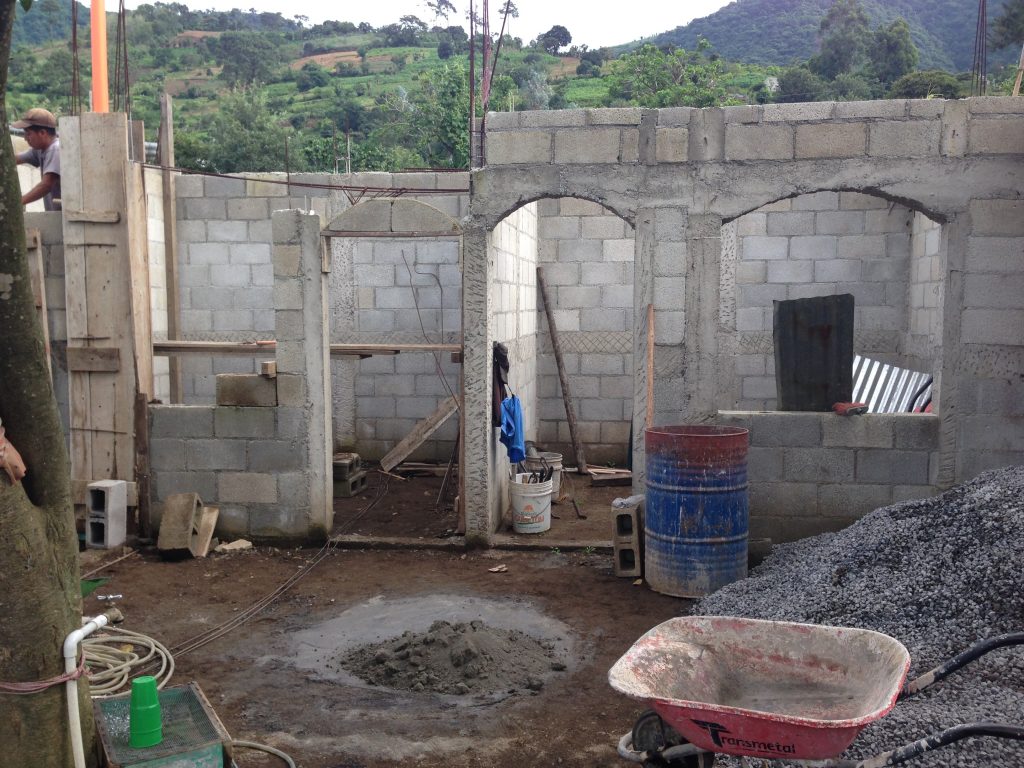

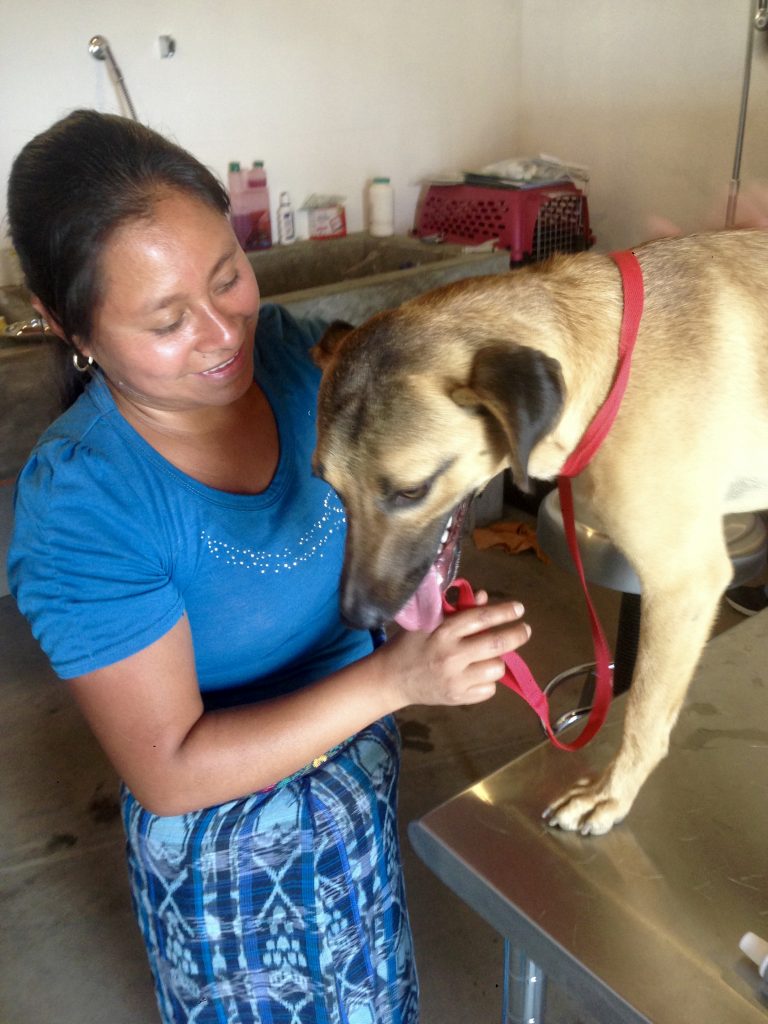
Luky’s house before, Luky’s house after, Luky and her dog.
Luky joined the project when she was going through a difficult time with her husband (infidelity and domestic abuse is common in Guatemala) and in the end, Luky’s husband left and took their daughter, leaving Luky and her son Hendrick on their own. They had started a house on Luky’s inherited land but it was still unlivable and so they were living with family. Luky impressed us in every way and started working for Small Change 4 Big Change, cleaning the center a few times a week. Now she is the official project assistant- she is with us every morning helping with preschool, scholarship girls, animals and anything else. In 2017 we were able to finish Luky’s house not only for her and her son, but also so that she can receive volunteers. She charges $20US/day including all meals and is able to give visitors a great experience while earning extra income.
Roxana’s Chicken Feed and Weaving Shop
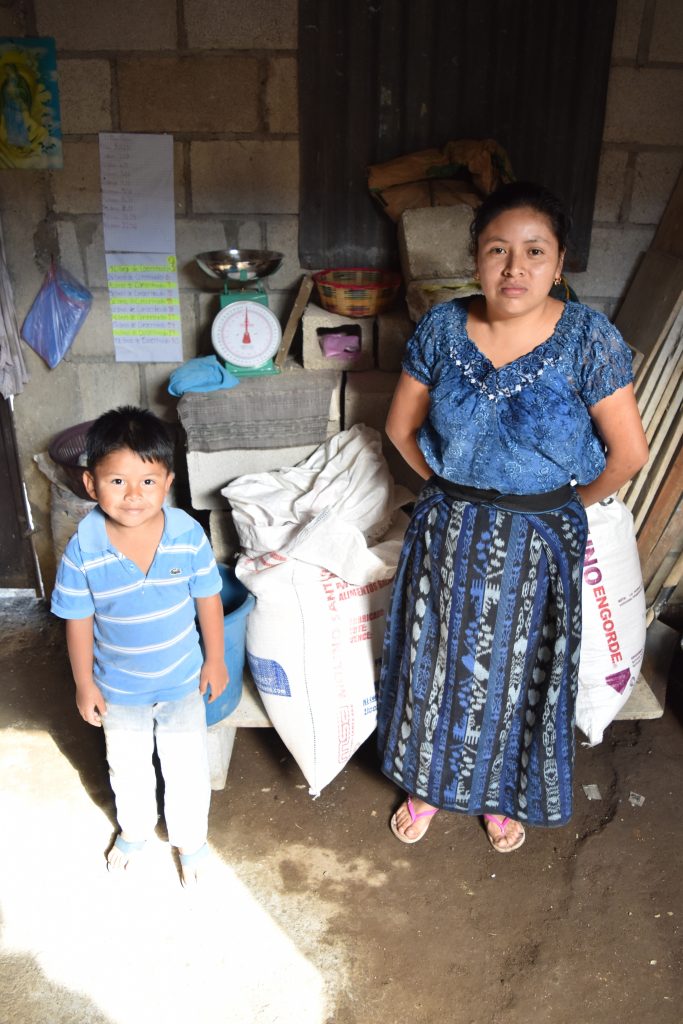
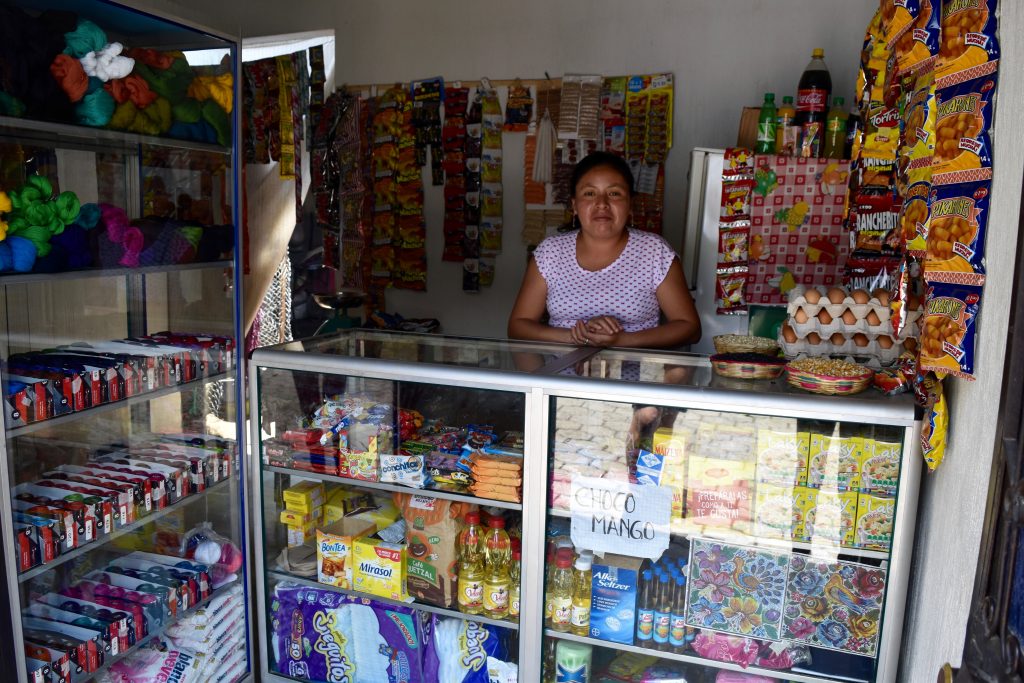
Roxana had been in the project for years and always wanted a store. To begin, in 2016 we bought her a scale and 200 pounds of chicken feed (she had graduated from the How To Raise Chickens at Home Class and then certified to be the teacher) and we told her to sell it and reinvest. She got the hang of it immediately and within a few months was selling other grains. We were able to build out a space in her home to put a tienda, and she added weaving materials as well. Roxana also added a variety of junk food- which was not part of our vision- but it is her store, and that is up to her. Junk food, aside from being terrible for the people here, makes very little profit. But anyway, she is able to help put money into family expenses along with her husband who is a baker, while she takes care of her 4 children at home. They have now been able to put in cement floors instead of dirt throughout the entire home, and have also bought a moto so her husband can get to work more easily.
Felipe and Elia’s Tienda
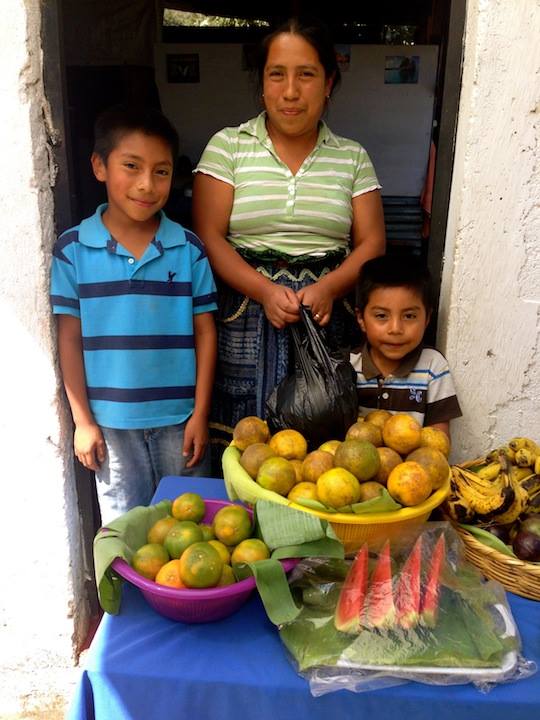
In 2015, we helped Diego and Elia with a store they were starting. Back then, we could only do projects for several hundred dollars, so we bought them a refrigerator and a snow-cone maker so they could diversify and offer more products that other stores in the surrounding areas didn’t have (stores are abundant here). Most families don’t have refrigerators so they go to the store a few times a day when they need something. Now the store is big and stocked with a variety of products, and in this way, Diego and Elia are able to earn their own money instead of relying on foreign or government aid. They have two boys, Diego, who is now in chef school, and Daniel Esdras, who is in primary school, and they support them on their own.

